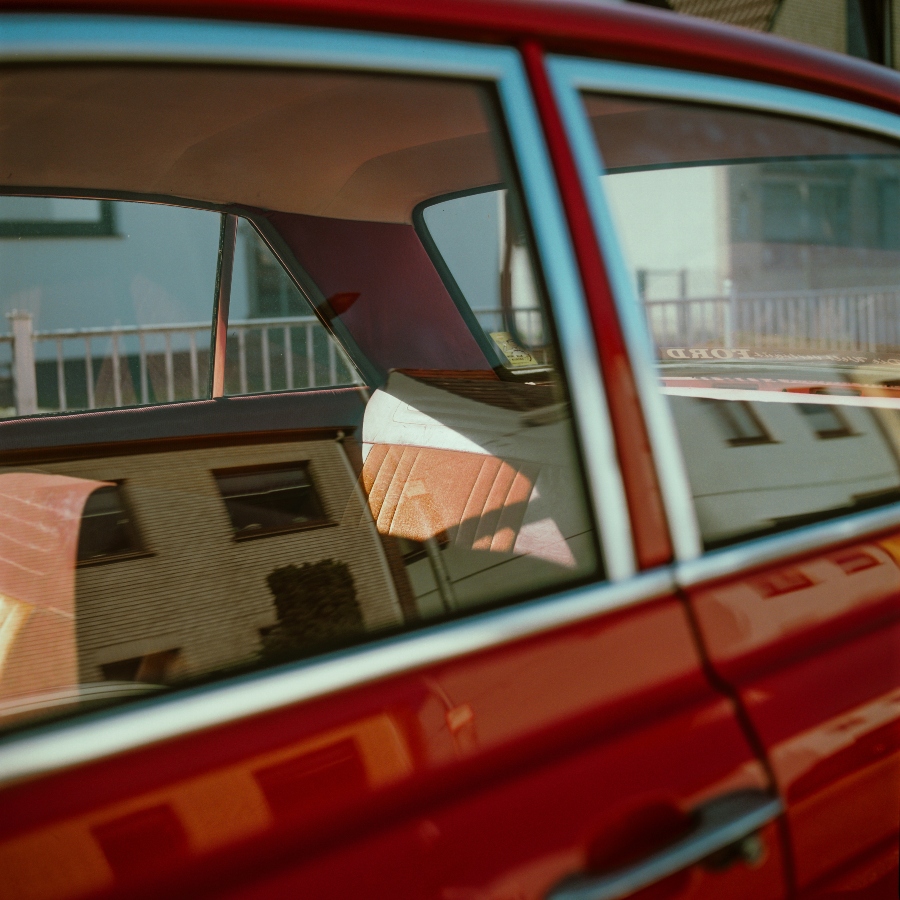Unsecured in the back seat, I stretched my legs out where my sibling usually sat next to me, preaching about personal space, railing on how much I needed to grow up, give them some room, goddamn it. I’d kicked off my shoes like always, and as the good old country, not that new Randy Travis horseshit Papaw never stopped bitching about, played on and on so loud Granny June couldn’t hear herself think, I went upside down at the window, the gray flash of the highway and road weeds whirring by, thinking about what folks did in all those houses—I gave up counting gliders and flags and tarps on rooftops—we were going too fast. Granny June must’ve thought so, too, because she’d grunt every so often and grab the oh shit handle. Mama says I ain’t supposed to call it that or answer the phone with that word neither, no matter what they do, but I wanted to so bad I could feel it coming like how you know when Mama locks herself in her room again, you’re gonna slide the chair over to the fridge and pull yourself up on the counter to sneak handfuls of the good chips in the big can ain’t nobody supposed to touch but Papaw after church. My head felt fuzzy from the vibrations against the glass, and my teeth likened to fall out, too, but I kept up with it, testing, testing my limits, how close I could get to pure misery without whining. We know something about pure misery, we do. Uncle John got electrocuted trying to fix the powerlines after the storm. All it took was one line. One line come down, hit him in the head, and that was that. When they told me what happened, I asked whether or not his plastic hat melted to his head, but I’m inappropriate, and the grownups said it was time to call it a night. We went to the funeral home to hug Aunt Joe’s neck and bring her a bucket of green beans in case she forgot to eat a vegetable with all her sadness. We went to see the body. The vessel. He ain’t in there anymore. We went to pray for his soul. Granny June says not to mention the bit about his soul to Papaw. Their family don’t see it the way we do. I got to light and hold a candle while they talked about what it meant to be a good man and how can’t none of us judge no one lest we’ve walked a mile. I wanted to ask why the preacher didn’t say lest we’ve been up in the bucket, which is what anybody who knew Uncle John would’ve said, but I stayed quiet and watched wax pool on the piece of paper meant to protect our hands. When I closed my eyes and the bright light hit, teeth still rattling in my head there against the window, I couldn’t remember if it was Uncle John or Papaw who told me the way the sun broke through the clouds warn’t no souls going up to heaven; they was just sunbeams and ain’t that beauty enough?

Golden Hour, Four Days After the Storm
Beth Gilstrap
Beth Gilstrap is the author of Deadheading & Other Stories (2021), Winner of the Red Hen Press Women’s Prose Prize, and short-listed for the Stanford Libraries William Saroyan International Prize for Writing. She is also the author of I Am Barbarella: Stories (2015) from Twelve Winters Press and No Man’s Wild Laura (2016) from Hyacinth Girl Press. Born and raised near Charlotte, she recently relocated to the Charleston-metro area. She also lives with c-PTSD and is quite vocal about ending the stigma surrounding mental illness. You can find her on Instagram @BettySueBlue.
